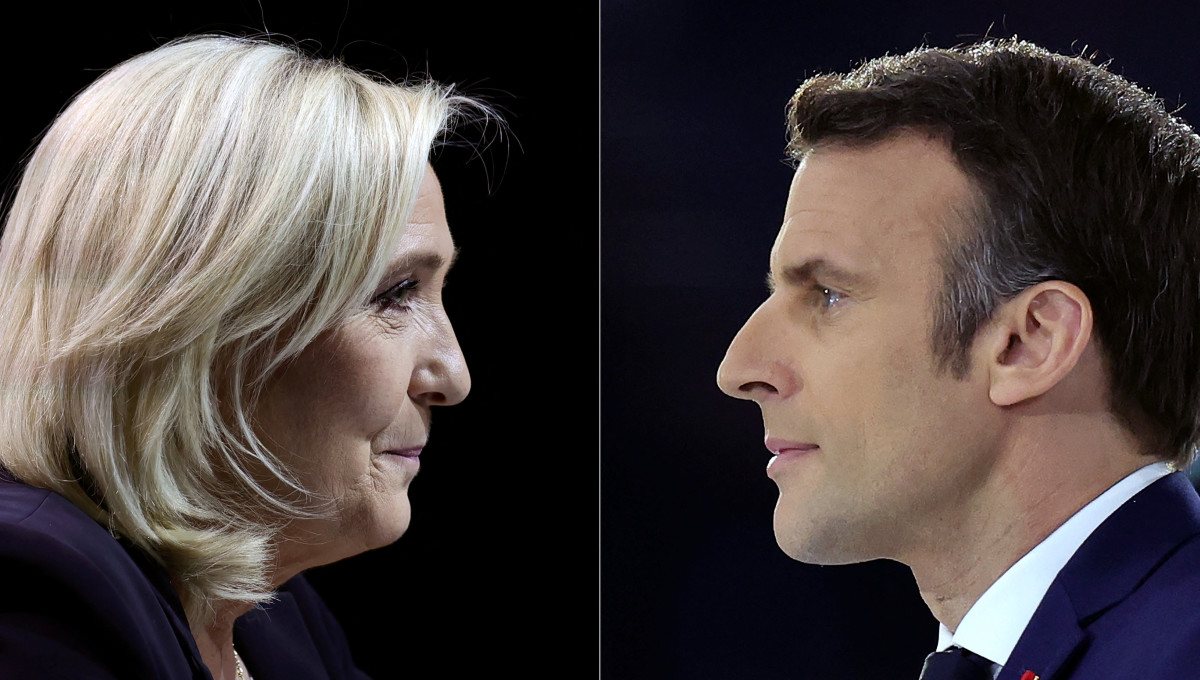French voters this morning (Sunday) are participating in the first round of snap parliamentary elections that could lead to the country’s first far-right government since World War II, a potentially dramatic shift at the heart of the European Union.
President Emmanuel Macron stunned the country when he called an election after his centrist alliance was defeated in European elections this month by Marine Le Pen’s Union Nationale (RN). Her Eurosceptic party, which promotes anti-immigration policies and has long been considered a fringe party, is now closer than ever to a majority.
The Democrats are in a lot of trouble: Biden failed in the confrontation – but “he has no successor”
Will the president save Netanyahu? In the Prime Minister’s environment, they turned to Herzog for the following reason
The electoral system makes it difficult to assess the exact distribution of seats in the 577-seat National Assembly, and the final result will not be known until the end of the vote on July 7.
“We are going to win with an absolute majority,” Le Pen said in an interview with the media on Wednesday, predicting that her protégé, 28-year-old Jordan Bardella, would be prime minister. Her party, the National Union (RN), has a high-spending economic program and seeks to reduce immigration. If the RN does win an absolute majority, French diplomacy could find itself in an unprecedented political upheaval: with Macron – who has said he will continue his presidency until the end of his term in 2027 – and Bardella, competing for the right to speak for the French.
France has had three periods of “coexistence” – when the president and government are from opposing political camps – in its post-war history, but none with such radical worldviews competing at the top of the country.
Bardella has already indicated that he will challenge Macron on global issues. France could turn from one of the pillars of the European Union into a country that operates on its margins, demand refunds of French contributions to the EU budget, confront Brussels over jobs in the European Commission and, according to them, turn President Macron’s calls for unity. A clear victory for the RN will also bring uncertainty as to France’s position in the war between Russia and Ukraine. Le Pen has a history of pro-Russian sentiment and while the party now says it will help Ukraine defend itself against Russian invaders, it has also set red lines, such as refusing to provide long-range missiles.
Opinion polls indicate that the RN has a comfortable lead of 33-36% of the vote, with a hastily assembled leftist coalition, the New Popular Front, in second place with 28-31% and Macron’s Center Alliance in third with 23-20%.
The new Popular Front includes a wide range of parties, from the moderate center-left to the far-left, Eurosceptic and anti-NATO France Unsubdued party, led by one of Macron’s fiercest opponents, Jean-Luc Melanchon.
“It is difficult to predict how the poll numbers will translate into seats in the National Assembly because of the way the elections work,” said Vincent Martini, professor of political science at the University of Nice and Ecole Polytechnique, to the British news agency “Reuters”.
Candidates can be elected in the first round if they win an absolute majority of the vote in their district, but this is rare. Most districts will need a second round that includes all candidates who received votes from at least 12.5% of registered voters in the first round. The candidate with the highest score wins. “If there are high percentages of votes, it can be assumed that a third or fourth party will find its way to parliament. There is a risk of splitting the vote, which of course benefits a party like the National Union,” Martini said.
For decades, as the far right steadily gained popularity, voters and parties that did not support it would unite against it whenever it moved closer to positions of power and control, but this situation seems more distant than ever today. Martini also said in the interview that no one knows whether candidates from Macron’s camp will consider withdrawing from the second round to give opponents from the left a chance to beat the RN, or vice versa.
Le Pen and Bardella sought to make their party’s image more acceptable to the mainstream, for example by condemning anti-Semitism. Le Pen’s father, Jean-Marie Le Pen, founder and long-term leader of the predecessor of the RN, had a history of openly anti-Semitic comments. But critics say the RN’s courting of Jews is just a cover that allows it to deny accusations of racism while constantly labeling Muslims and foreigners.
